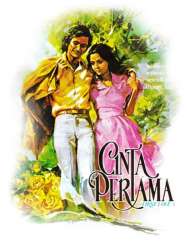Nano Riantiarno is a Actor Indonesien born on 6 june 1949 at Cirebon (Indonesie)

Nobertus Riantiarno (better known as Nano Riantiarno or N. Riantiarno; born 6 June 1949 in Cirebon) is an Indonesian actor, director, and playwright. Beginning his acting while in high school, he studied under Teguh Karya, acting in several movies and plays, until eventually establishing his own theatre troupe, Teater Koma, in 1977. His works, with their highly political messages, were often censored by Suharto's New Order government. In 1998 he won the SEA Write Award for his play Semar Gugat.
After graduating from high school, Riantiarno left for Jakarta to attend the Indonesian National Theatre Academy (Akademi Teater Nasional Indonesia). At the academy, he studied Constantin Stanislavski's theories on realism and took an unregistered course under Teguh Karya. After the course was banned, he assisted Karya in the founding of the troupe Teater Popular, where he continued to practice acting under Karya's leadership. He also took up playwrighting and directing during his time.
While working with Karya, Riantiarno performed in several plays and films. His credits with Teater Popular include Shakespeare's Macbeth, Tennessee Williams' The Glass Menagerie, Karel Čapek's The White Disease, and his own Doa Natal (Christmas Prayer). Riantiarno also acted in several of Karya's films, including Cinta Pertama (First Love) and Kawin Lari (Elope).
In 1971, he began studying at the Driarkara School of Philosophy, and in 1975 left Teater Populer to travel throughout the archipelago and see various forms of traditional Indonesian theatre and other forms of folk art, including wayang and ketoprak.
Finishing his travels, Riantiarno founded Teater Koma on 1 March 1977, with Rumah Kertas (Paper House) being its first production. The title of the troupe was drawn from Riantiarno's belief that "theater is a journey without periods but filled with commas". After taking a six-month hiatus to study at the International Writing Program in Iowa City, Iowa, in 1978, his troupe produced the well-received Maaf, Maaf, Maaf (Sorry, Sorry, Sorry). Another play, JJ, followed in 1979.
During this period, the New Order government banned plays with "dissident" themes, often picking playwrights and writers deemed potential dissidents up for questioning arbitrarily. Riantiarno himself experienced repression several times, with his 1985 play Opera Kecoa (Cockroach Opera, depicting prostitutes, transsexuals, and corrupt officials) causing all of his subsequent plays to require explicit permission from the government before being performed.
Another of his plays, 1988's Sampek Engtay (based on the Chinese legend Butterfly Lovers), ran afoul of the New Order's discriminatory practices. Due to numerous pieces of legislation limiting Chinese Indonesian culture, the use of Chinese symbols was forbidden, as was the traditional barongsai (lion dance). Two years later Riantiarno was interrogated in response to his play Suksesi (Succession), which touched on themes of nepotism.
In 1995, Riantiarno wrote Semar Gugat (Semar Accuses), using characters, such as Semar, from Javanese wayang. He received a SEA Write Award in 1998 for the work.
After the fall of Suharto in 1998, Riantiarno's plays continued to contain political messages. Opera Sembelit (The Constipation Opera) dealt with "overbloated leadership", while Republik Bagong (Bagong's Republic) is a satire of inept leadership and an overabundance of political parties set in a wayang context.
Source : Wikidata
Nano Riantiarno

- Infos
- Photos
- Best films
- Family
- Characters
- Awards
Birth name Nobertus Riantiarno
Nationality Indonesie
Birth 6 june 1949 (75 years) at Cirebon (Indonesie)
Awards S.E.A. Write Award
Nationality Indonesie
Birth 6 june 1949 (75 years) at Cirebon (Indonesie)
Awards S.E.A. Write Award
Biography
Riantiarno was a twin born in Cirebon, West Java on 6 June 1949 to M. Albertus Sumardi, a railway employee, and Agnes Artini; the other twin was his brother Pujo Purnomo. He attended State Elementary School IV from 1955 to 1961, followed by State Junior High School II from 1961 to 1964. He then studied at State Senior High School I and II; during this time, he joined the Tunas Tanah Air troupe and read poetry at the local RRI station.After graduating from high school, Riantiarno left for Jakarta to attend the Indonesian National Theatre Academy (Akademi Teater Nasional Indonesia). At the academy, he studied Constantin Stanislavski's theories on realism and took an unregistered course under Teguh Karya. After the course was banned, he assisted Karya in the founding of the troupe Teater Popular, where he continued to practice acting under Karya's leadership. He also took up playwrighting and directing during his time.
While working with Karya, Riantiarno performed in several plays and films. His credits with Teater Popular include Shakespeare's Macbeth, Tennessee Williams' The Glass Menagerie, Karel Čapek's The White Disease, and his own Doa Natal (Christmas Prayer). Riantiarno also acted in several of Karya's films, including Cinta Pertama (First Love) and Kawin Lari (Elope).
In 1971, he began studying at the Driarkara School of Philosophy, and in 1975 left Teater Populer to travel throughout the archipelago and see various forms of traditional Indonesian theatre and other forms of folk art, including wayang and ketoprak.
Finishing his travels, Riantiarno founded Teater Koma on 1 March 1977, with Rumah Kertas (Paper House) being its first production. The title of the troupe was drawn from Riantiarno's belief that "theater is a journey without periods but filled with commas". After taking a six-month hiatus to study at the International Writing Program in Iowa City, Iowa, in 1978, his troupe produced the well-received Maaf, Maaf, Maaf (Sorry, Sorry, Sorry). Another play, JJ, followed in 1979.
During this period, the New Order government banned plays with "dissident" themes, often picking playwrights and writers deemed potential dissidents up for questioning arbitrarily. Riantiarno himself experienced repression several times, with his 1985 play Opera Kecoa (Cockroach Opera, depicting prostitutes, transsexuals, and corrupt officials) causing all of his subsequent plays to require explicit permission from the government before being performed.
Another of his plays, 1988's Sampek Engtay (based on the Chinese legend Butterfly Lovers), ran afoul of the New Order's discriminatory practices. Due to numerous pieces of legislation limiting Chinese Indonesian culture, the use of Chinese symbols was forbidden, as was the traditional barongsai (lion dance). Two years later Riantiarno was interrogated in response to his play Suksesi (Succession), which touched on themes of nepotism.
In 1995, Riantiarno wrote Semar Gugat (Semar Accuses), using characters, such as Semar, from Javanese wayang. He received a SEA Write Award in 1998 for the work.
After the fall of Suharto in 1998, Riantiarno's plays continued to contain political messages. Opera Sembelit (The Constipation Opera) dealt with "overbloated leadership", while Republik Bagong (Bagong's Republic) is a satire of inept leadership and an overabundance of political parties set in a wayang context.
Usually with
Filmography of Nano Riantiarno (3 films)
Actor

Ponirah Is Convicted (1984)
, 1h47Directed by Slamet Rahardjo
Genres Drama, Crime
Actors Christine Hakim, Teguh Karya, Slamet Rahardjo, Nano Riantiarno
Rating63%





Since birth Ponirah has lived a cursed life. Her mother died while birthing her and her brother Permadi is hit by a truck while riding a bicycle with her. This leads her father, Jabarudi, to go temporarily insane and nearly stab her with a kris. Their maid, Trindil (Christine Hakim), brings Ponirah with her and escapes the city, settling in Yogyakarta. Trindil becomes a prostitute to support herself and Ponirah; the two live at the brothel.

First Love (1973)
, 1h50Directed by Teguh Karya
Genres Romance
Actors Christine Hakim, Slamet Rahardjo, Nano Riantiarno, El Manik
Rating69%





Ade (Christine Hakim) and Bastian (Slamet Rahardjo) meet on a train bringing them to Jakarta. Bastian is on his way to a job interview, while Ade and her friends have just returned from a trip out of town. As they talk, they realize that Bastian's interview is at Ade's father's company. They soon develop romantic feelings for each other. However, Ade has unwillingly been promised in marriage to Johny (N. Riantiarno), the son of her father's business partner.

Wadjah Seorang Laki-laki (1971)
, 1h50Directed by Teguh Karya
Actors Slamet Rahardjo, Tuti Indra Malaon, Nano Riantiarno
In 19th-century Batavia (modern day Jakarta) a young man, Amallo (Slamet Rahardjo), rises up against his father, Umbu Kapitan (WD Mochtar), after his father's boorishness and irresponsibility lead to his mother's death. This is sparked by the father's subsequent marriage to a mixed-race woman. Amallo begins stealing horses from his father and smuggling weapons used to fight against the Dutch East India Company, for whom his father works.
 Connection
Connection


